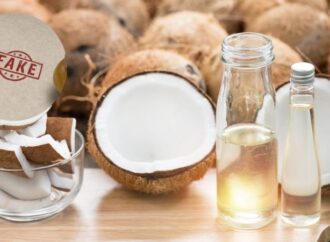Have you ever wondered why certain foods like cheese, fish, or sausages sometimes have a strong, sharp smell — or why eating them can occasionally trigger headaches or allergic reactions? The secret behind this lies in tiny natural chemicals called biogenic amines. These compounds form during food spoilage or fermentation and can have a big impact on your health, both positive and negative.
In today’s world, with the rising popularity of processed and fermented foods, it’s more important than ever to understand what biogenic amines are, where they come from, and why they matter to you. As more people rely on convenience and packaged foods, exposure to these compounds is increasing. At the same time, lifestyle-related health issues like allergies, high blood pressure, and food sensitivities are on the rise. By learning how to manage biogenic amine intake, you can take a simple but effective step toward protecting your health.
What Exactly Are Biogenic Amines?
Biogenic amines are organic compounds that come from amino acids — the building blocks of proteins. Think of them as little chemical messengers formed when bacteria or enzymes act on proteins in food. This process happens naturally during fermentation or when food starts to spoil. Some common biogenic amines you might have heard of include:
- Histamine
- Tyramine
- Putrescine
- Cadaverine
- Serotonin
- Dopamine
While some of these amines are vital for your body’s normal functioning — for example, serotonin and dopamine are important brain chemicals — others, like histamine and tyramine, can cause health issues if consumed in large amounts.
Where Do Biogenic Amines Come From?

Biogenic amines form mainly in protein-rich foods when specific bacteria break down amino acids. This can happen during:
- Food fermentation: Cheese, wine, beer, soy sauce, and fermented sausages naturally contain biogenic amines. Fermentation is a controlled process that encourages good bacteria, but sometimes biogenic amines build up too much.
- Food spoilage: When food like fish or meat starts to go bad due to poor storage or handling, bacteria multiply and produce biogenic amines like putrescine and cadaverine, which contribute to the foul smell of rotten food.
- Certain vegetables and fruits: Some plants, such as tomatoes, bananas, and eggplant, also contain low levels of biogenic amines naturally.
Why Should You Care About Biogenic Amines?
While biogenic amines are natural, too much of them in your food can be a red flag for your health. Here’s why:
Foooisoning and Allergic Reactions
Histamine, one of the most common biogenic amines, is often linked to food poisoning. When histamine builds up in spoiled fish — a condition called “scombroid poisoning” — eating it can cause symptoms like:
- Headaches
- Flushing of the skin
- Itching
- Nausea
- Vomiting
- Difficulty breathing
This happens because histamine acts like a chemical alarm in your body, triggering allergic-like reactions.
Blood Pressure Problems
Tyramine, found in aged cheese and cured meats, can cause sudden spikes in blood pressure. People taking certain medications (like MAO inhibitors for depression) need to avoid high-tyramine foods because the combination can be dangerous.
Other Health Issues
Excessive intake of putrescine and cadaverine, often found in spoiled foods, can worsen the effects of histamine and other toxins, increasing the risk of foodborne illness.
Protecting Yourself from Harmful Biogenic Amines
The good news is, you can enjoy your favourite foods without worry by following a few simple tips:
- Buy Fresh and Store Properly
Always buy fresh meat, fish, and dairy products from trusted sources. Keep them refrigerated and consume them before their expiry dates.
- Be Careful with Fermented Foods
Fermented foods like cheese, wine, and sausages are delicious and nutritious, but can have high biogenic amine levels if not made or stored properly. Choose reputable brands and avoid consuming them in excess.
- Watch Out for Spoilage Signs
Never eat fish or meat that smells off or has an unusual colour or texture. These are signs that biogenic amines might be building up.
- Understand Your Body
If you notice headaches, flushing, or other allergic symptoms after eating certain foods, talk to your doctor. You might be sensitive to biogenic amines.
Final Thoughts
Biogenic amines are a natural part of many foods and play important roles in the body. However, when they accumulate in high amounts due to spoilage or improper food processing, they can pose health risks. By choosing fresh foods, storing them well, and being aware of how your body reacts to certain items, you can enjoy a safe and healthy diet. Remember, moderation is key — fermented and processed foods are fine in reasonable amounts. Stay informed, listen to your body, and enjoy your meals safely!
 Food Manifest
Food Manifest 


















